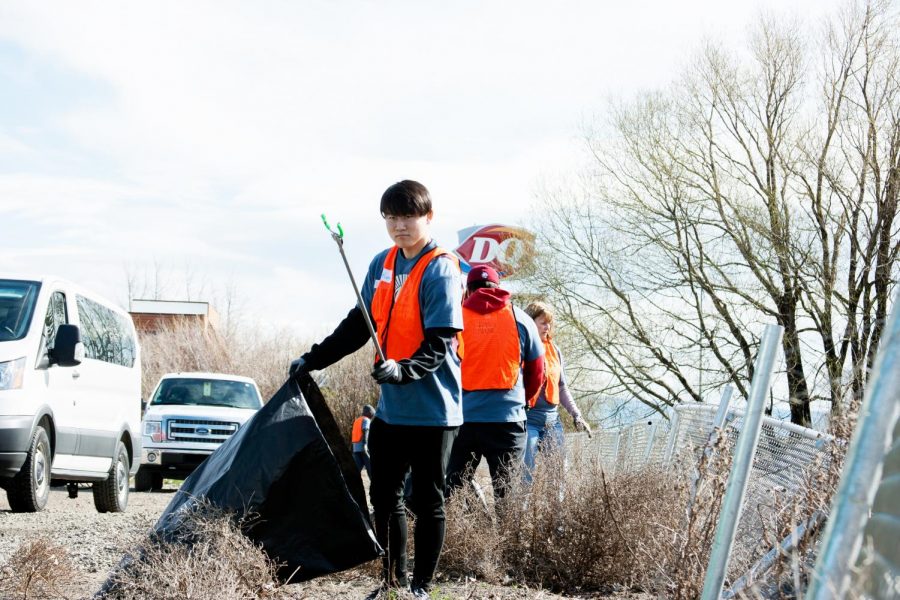Earth month at CWU
Haruma – a AUAP student fills a bag full of trash that was left along side a Dary Queen near the Ellensburg roundabout.
April 20, 2018
The Center for Leadership and Community Engagement (CLCE) will put on six activities in April to celebrate Earth Month. The purpose of Earth Month is to inform people about the environment and all the issues which go with it
A few of these events are “Clean Up” sessions, like the Yakima River Clean Up, but also educational activities to teach to people how recycle and to raise awareness of global issues.
Nola Longacre, a sophomore intended construction management major, is an active member of the CLCE.
“The environment is definitively something very important to take care of,” Longacre said. Through the different activities, the CLCE tries to raise awareness among the students concerning global warming, forest pollution and heritage conservation.
In the past, Earth Month was only one week, but it slowly grew into a month-long event. Longacre explained that there are more and more people who come every year. Students want to be involved and create a change.
“For Yakima Clean Up, the big one, we have almost four hundred volunteers.” Longacre said.
Testuo Iizuka, a senior linguistic studies major, expressed interest in Earth Month because of his love for outdoor life.
“I participated to Olmsted Clean Up. It was a great experience because I really felt that my work was changing things and making the world better,” Iizuka said.
On April 13, the Department of Anthrophony showcased a conference on orangutan protection in Indonesia. A conference titled “An Evening with Dr. Biruté Mary Galdikas” was organized in collaboration with the Orangutan Foundation International.
Dr. Birute Galdikas is a scientist and professor at Simon Fraser University in British Columbia, Canada. For over four decades she has studied and worked closely with orangutans of Indonesian Borneo in their natural habitat.
During the conference, she explained that the biggest issue for the conservation of orangutans is palm oil.
“Orangutans are on the edge of extinction, they classify as critically endangered,” Galdikas said.
The plantations of palm oil are destroying the tropical rainforests of Indonesia where orangutans and many other species live.
She also explained that there is a connection to global climate change.
“Indonesia is the third largest emitter of CO2 into the world atmosphere. It is because of the massive amount of tropical rain forests being cut and burned in order to establish palm oil plantations,” Galdikas said.
Palm oil is a cheap oil and is used in the fabrication of many industrial products such as baked goods and make-up.
According to Galdikas, palm oil is bad for human health. Moreover, the production of palm oil is not only destroying orangutan habitats, it is also destroying the home of native populations of Indonesian forests. Also, workers in the plantations are brought from poor countries and work in dangerous conditions for little salary. Even children work with their parents in the plantations.
“If you use and consume palm oil, much of the time, you have blood on your hands,” Galdikas said.


